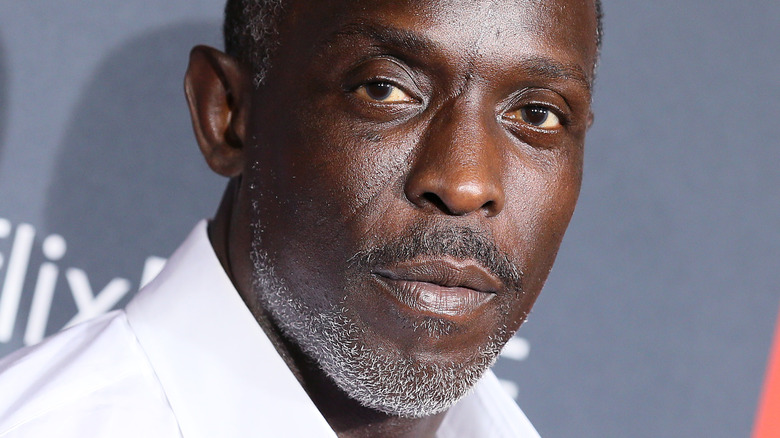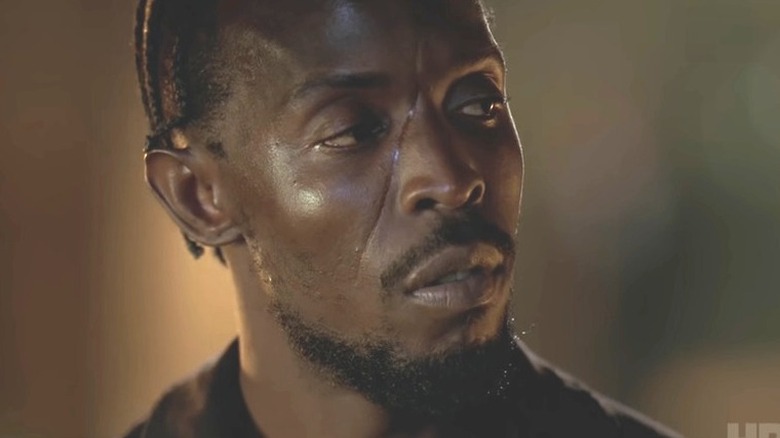One Major Thing Michael K. Williams Wished The Wire Had Done Differently In Regards To Omar
Out of all the shows that HBO launched in the late 90s and 2000s, most people agree that "The Wire" was one of the most groundbreaking. It also helped kick off the careers of many of the show's actors, including Michael B. Jordan, Idris Elba, Dominic West, and Michael K. Williams. But even co-creator Ed Burns doesn't think that "The Wire" could be made in this post "Game of Thrones" era, telling The New York Times that things are different now. To get the attention of the HBO executives, "It's got to be big. It's got to be disconnected from stepping on anybody's toes. I've watched a couple of the limited series on HBO, and they're good shows, but they're not cutting new paths."
But while the critically acclaimed series may have lacked the epicness that we see in many of the current HBO series, it pulled no punches when it came to controversial, hard-to-watch storylines. But even with realistic scenes of drug abuse and violence, "The Wire" hit pause when it came to showing a different kind of reality. In his posthumous memoir, "Scenes of My Life," Michael K. Williams was vocal about what he wished "The Wire" had done differently with his character, Omar.
Williams wanted to show Omar intimate with his lovers
Omar wasn't just a gay character on "The Wire," he was one of the first openly gay characters on television. At first, Williams was nervous about the role, but he soon realized everyone around him was more scared than he was. "In regards to Omar and his lover Brandon (Michael Kevin Darnall)," Williams wrote in Scenes from My Life (via Vulture), "it seemed like everyone was dancing around their intimacy issue. There was lots of touching hair and rubbing lips and things like that. I felt like if we were going to do this, we should go all in. I think the directors were scared, and I said to one of them, "You know gay people ****, right?"
Williams ended up convincing Darnall that they should really kiss in an upcoming scene, and he remembered the crew was shocked, with everyone stopping to watch the scene. "The director, Clark Johnson, was on a ladder, and he said, "Whoa, whoa, whoa, hold up." He wasn't really watching the first time but just heard the lips smack and maybe sensed the crew's reaction. "Do that again," Williams wrote.
Williams's portrait of Omar as an unapologetic, fully fleshed-out Black, gay character helped change the way LGBTQ+ people are viewed and portrayed in films and television. Change never happens overnight, but it begins with people like Williams, who aren't afraid to push boundaries and show reality as it is.

